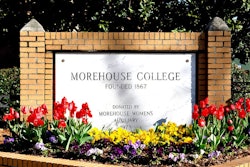As the college athletics regulator, the National Collegiate Athletic Association (NCAA), deliberates over establishing guidelines on how much a student athlete should be allowed to profit off their name, image and likeness (NIL), more than a dozen states are planning to introduce their own laws that will govern the extent to which these players can benefit from their brand identities.
Last October, the NCAA announced that its board of governors had unanimously voted to allow student-athletes the opportunity to benefit from the use of their NIL. The NCAA’s three divisions were instructed to immediately consider updates to bylaws and policies that enabled student-athletes to earn money while also keeping education as a priority.
Still, no rules or guidelines have been published to date, even though, on Jan. 23 the co-chairs of the NCAA working group on NIL said they continue their efforts to provide “guidance” on the matter.
In the absence of national legislation, at least 20 states, including Michigan and Florida, have begun to craft their own legislation. In fact, in California, a bill has already been passed on NIL, which is due to take effect in 2023.
Who should take the lead?
“The issues involving college athlete compensation will head into a tailspin if legislation is not nationalized,” says sports attorney Richard Roth. “The NCAA has to take the lead to assist legislatures through the process. Any other solution — like allowing the states to enact laws — will result in endless headaches.”
Roth fears that states may try to one-up each other with legislation that will help attract student-athletes to schools in their states. Without federal legislation led by the NCAA, the best interest of student-athletes could be lost amid conflicting rules and regulations.














